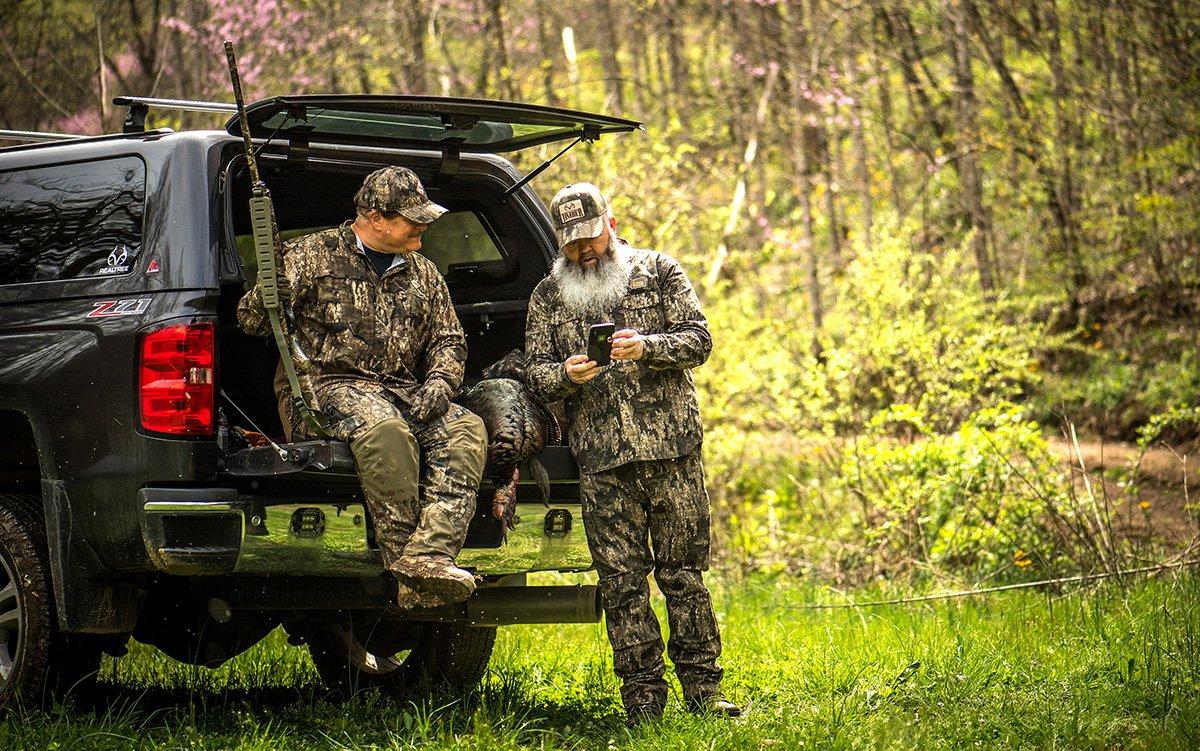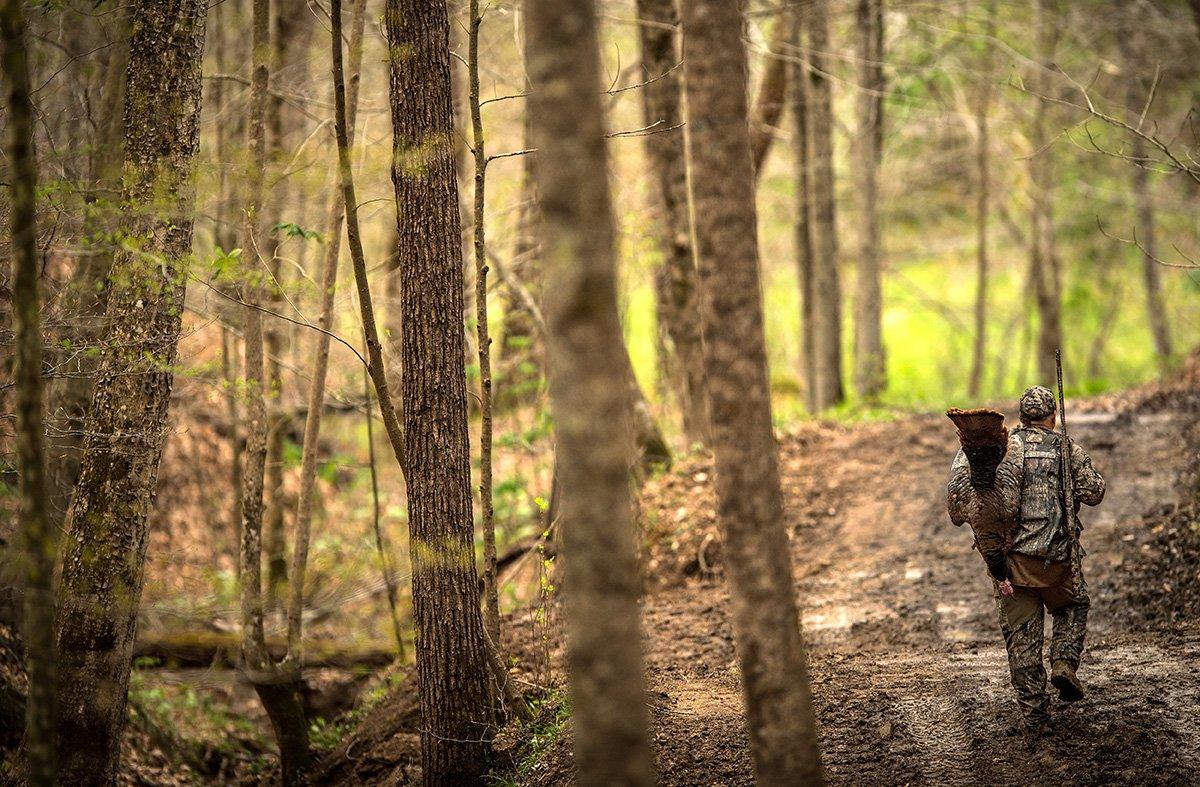On public land and private too, the spring turkey woods are getting crowded. Here's how to handle the pressure when someone moves in on your favorite gobbler spot
Every day was a Saturday last spring turkey season. Travel restrictions kept some folks close to home. Permit and license sales jumped for many states, as did kill numbers. Turkeys — and hunters chasing those birds — felt more pressure. And at least some of that increased pressure is likely to remain in 2021.
Bad news: There is a good chance another hunter will be in your spot this season. Options follow.
Another Hunter Is Parked Where You Park
Last spring, I drove in the dark, only to find my first spot looking like a used-truck lot.
Solutions: I kept driving and found nobody at my second spot. After that impressive start, you just never know. The walk in was long, but I struck multiple turkeys immediately. I slipped in, set up between two gobblers, and watched as one strutted on a distant limb. That bird flew down, now hidden in the woods. I softly yelped, and it roared back and walked right in. The real key here is to have multiple if not dozens of spots lined up before the start of the season. And even add more as you hunt.
Another Hunter Is Calling Your Bird
You are working a loud-mouthed gobbler that hangs up — and in the process announces this to the turkey woods. Likely the last thing you want. While gobbling is sweet to listen to, that turkey might call hens in (its intention, after all) or worse yet, another hunter. Sure enough, this happens a lot. Next thing you know, somebody is running their box call and moving closer. Bad situation.
Solutions: You can stand up and leave the turkey. I know, unpopular move, but safer. You can sit tight, wait for the guy to run your bird off, rest the spooked gobbler, and take a nap. After, late in the morning, you might have both forgotten about the bad experience and be ready to play the game again. Or the worst might happen. Your hung-up bird might run to the box-calling hunter — and you might hear a boom-down shot. It happens. Chill out. There are other turkeys in the woods.
Another Hunter Is Trespassing
Who gave you permission?
The landowner did.
Um, I'm the landowner and never met you before.
Well, that guy is busted. The landowner might feel generous and give the trespasser a break. Or not.
Solutions: You have permission on posted property, and to your knowledge, no one else does. If you see somebody there, you can report it to the farmer or landowner, sharing details. Or you can calmly tell the interloper you have permission, then ask, do they? Surprisingly, you might find others do too. If not, don't be surprised if the trespasser doesn't care (a bad thing), or if they didn't even know (forgivable) — or claim not to have known — it was posted. As they say, it takes all kinds.
Another Hunter Is Stalking Your Setup
Multiple times in multiple states, I've had other hunters stalk my calls. And even a California mountain lion that rushed and attacked a strutting gobbler and its hens as they came to me. All were dangerous situations.
While the cougar deal was memorable since I survived it, having a crab-crawling figure with a gun snaking my way is always unsettling.
Solutions: A lot of us old-schoolers were trained in this early and told to shout: Hey, hunter here! We were advised not to make sudden movements, as an approaching shooter might misidentify it with a turkey in a calling spot. If the hunter stalking you is far enough away though, stand, speak loudly, maybe wave if it seems safe. Though if you were working a gobbler, that deal is probably done for now.
Another Hunter Shoots Your Turkey
The bird is coming hard. And then you hear a bang. Ugh.
Solutions: Sit tight. The bird might have been with other gobblers. You would know that if they were vocal. Ride it out and call to them after those turkeys settle down. Or, yeah, leave the area. And if you see the hunter with your bird, congratulate them.
After all, you sort of helped.
End Game
If you live and hunt where the Eastern wild turkey subspecies lives, you know about hunter pressure. The same is true for Florida's Osceolas. Enthusiasm is high and people are plenty in both regions.
That said, out West, you can hunt vast public lands and be alone as you do it. Rio Grande gobblers, Merriam's, even some transplanted Easterns — and what some biologists simply dub hybrids — are there for the chasing. If anything, going it alone in such wilderness areas is inadvisable.
And the other hunter in your spot might as well be your buddy.
What makes Realtree.com the best online resource for turkey hunters? See for yourself. We cover all things turkey right here.









